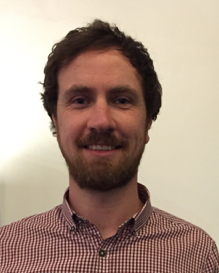Student profile: Robert Fenwick
Robert Fenwick is currently in the third year of his Masters in Advanced Clinical Practice. We caught up with him to hear about his experiences of the course and the advice he'd offer to other professionals considering applying.
What’s your career background?
I qualified as a nurse in 2004 and worked in acute medicine wards until 2005, before starting in the Emergency Department (ED) as a staff nurse and progressing to a charge nurse position. I was lucky enough to also be heavily involved in pre-hospital emergency care alongside my ED role between 2006 and 2014. Since 2014 I have worked as a trainee and then as a qualified Advanced Clinical Practitioner in Emergency Medicine at a large teaching trust in this region.
Why did you decide to do the ACP course at Warwick?
I had been aware of the ACP course at Warwick for a long time before I undertook my first module. It had been recommended to me as a challenging but rewarding experience, taught by very credible lecturers aware of the development that students need in the early stages of their career in this role. Thankfully the trust I work for had a very developed pathway for ACP progression that fed into the Warwick course almost exactly and therefore it was the logical (and only) course that I truly had aspirations of completing.
How have you been finding the course?
I was told the course would be challenging and it is exactly that. This is not unachievable, or unreasonable, but when I started in the roles it was essential that I was challenged academically and clinically. The structure of the MSc pathway is an excellent way to develop yourself and a logical way to improve your clinical effectiveness as early as possible into the course. I've found the lecturers to be knowledgeable, credible and extremely approachable.
What professions are the other students on your course from?
Throughout the course there have been a huge number of students from different backgrounds, such as paramedics, physiotherapists, pharmacists, occupational therapists and nurses from just about every imaginable clinical background. The rich mix of experiences and backgrounds has helped massively in changing my perspective on the challenges faced in different roles and the way these issues can be overcome. The friendships and professional relationships formed on the course will far outlast the duration of the MSc.
What have been your favourite parts of the course so far?
The first year modules are particularly engaging and are very clinical in their application and assessment. Learning the skills required for the ACP role from staff who already perform the role was not only enjoyable but improved my knowledge by a phenomenal amount. The second year was less clinical, but really focused on the interpretation and application of evidence-based medicine. This has provided me with a solid approach to appraising the literature and really taught me about the ways that ACPs can positively affect patient care by improving practice.
What aspects of the course have you found challenging?
All of the modules are challenging but in different ways. A good awareness of expectations from the outset was essential and I would recommend really getting to grips with time management so that the unnecessary pressure is kept to a minimum. I wouldn’t say I learnt this the hard way…. But there were certainly a few nights where I was awake for longer than I had planned!
How do you feel the course has benefited you so far?
This course has really provided me with the foundations of a (hopefully) long career in advanced practice. These skills that have been taught are used every single day of my working life. The confidence that is instilled through the assessment process has been very rewarding too.
Do you have any advice to offer other professionals considering doing the course?
There are a few things that I think have helped me during the course:
1. Having a colleague who can proof read your assignments in advance and be comfortable enough with you to tell you it’s rubbish (if it is!)
2. You need to have a system whereby you can get the appropriate level of clinical support in practice. For me this was an established and supportive consultant and senior ACP team who would let me know if I needed to improve (early, so that bad habits don’t get too engrained).
3. Have an understanding that work/life balance is important and there is likely to be an impact on this (especially when it nears deadline day). Letting my family know well in advance was always really helpful.

